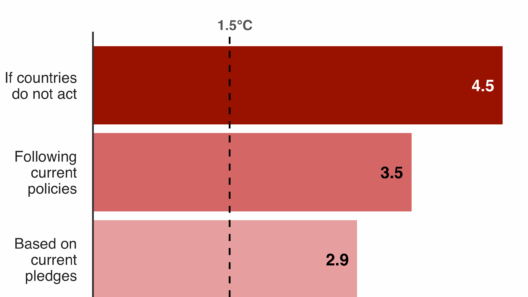In the throes of an ever-accelerating climate crisis, the choices we make in our daily lives extend beyond the immediate and tangible. While the flick of a light switch may appear to be a simple act, it encapsulates a broader conversation about energy consumption, resource management, and their nexus to global warming. Understanding the implications of leaving lights on, even in seemingly benign circumstances, is pivotal for comprehending our impact on the planet.
First and foremost, it’s essential to grasp the intricacies of energy production. Most electricity generation still heavily relies on fossil fuels, such as coal, oil, and natural gas. These resources emit greenhouse gases during combustion, thereby contributing to the greenhouse effect and, subsequently, global warming. When lights are left on unnecessarily, energy demand increases. This demand often necessitates ramping up power generation from fossil fuel plants. The correlation is explicit: each superfluous hour of illumination translates directly to amplified carbon emissions and exacerbated climate instability.
Moreover, consider the efficiency of varying lighting technologies. Incandescent bulbs, which once dominated residential lighting, are notoriously inefficient, losing approximately 90% of their energy as heat rather than light. This inefficiency not only fragments energy resource utilization but also engenders a detrimental cycle. The more energy we consume, the higher the demand for its generation, which invariably heightens fossil fuel dependency. On the other hand, compact fluorescent lamps (CFLs) and light-emitting diodes (LEDs) offer markedly improved efficiency. While the gradual shift to these technologies is encouraging, it remains imperative to utilize them judiciously. Leaving even efficient lights on constantly not only squanders energy but also extends the life cycle of energy production-related emissions.
Furthermore, the act of leaving lights on clutters our understanding of sustainability. In a world striving for ecological balance, mindfulness in energy consumption is crucial. It’s not solely about choosing modern technologies but also critically assessing their usage patterns. Educational initiatives, grassroots campaigns, and community discussions can spur a cultural shift towards responsible energy stewardship. It is incumbent upon individuals to internalize the mantra that every action, no matter how insignificant it may apprear, matters. This ethos of mindfulness can permeate through households and permeate communities, forging a collective consciousness about the need for sustainable practices.
A particularly poignant aspect of this discussion is the influence of behavior on energy consumption. Behavioral economics elucidates that people often do not fully grasp the long-term implications of their immediate choices. Leaving lights on in an unoccupied room may seem innocuous, yet it compounds over time. The cumulative effect not only leads to unnecessary energy waste but also diminishes the larger narrative of climate consciousness. By cultivating a culture of awareness and responsibility, we not only reduce energy consumption but also foster a greater understanding of our role in the overarching ecological narrative.
In tandem with these personal choices, we must recognize collective action as a formidable force for change. Smart lighting systems, which can be programmed to dim or turn off based on occupancy, represent an innovative intersection of technology and sustainability. Such automation can significantly diminish the likelihood of leaving lights on unnecessarily. Beyond household innovations, policy frameworks and incentives that promote energy-efficient practices can create systemic change. Governments and institutions must navigate the complex labyrinth of environmental policy, pushing for regulations that encourage efficiency in energy consumption at every tier—from manufacturers to end-users.
Moreover, the interplay between energy consumption and socioeconomic factors cannot be overlooked. Communities with limited access to resources often grapple with the challenges of energy poverty. In such contexts, the push for efficiency must align with strategies that empower vulnerable populations. Educational programs that impart knowledge about energy conservation should be tailored to meet the unique needs and circumstances of these communities. The goal is not merely to reduce energy waste in affluent areas but to uplift and educate all strata of society to foster equitable sustainability.
The repercussions of ignoring the ramifications of leaving lights on resonate paradigm-wide. Think about the thermal inertia of climate change; every flicked switch contributes to this momentum. As the world grapples with increasingly severe weather patterns, rising sea levels, and biodiversity loss, addressing even the minutiae of our consumption habits becomes vital. Advocating a lifestyle that embodies restraint in energy utilization complements larger-scale environmental efforts to mitigate climate change.
Ultimately, the choice to leave lights on encapsulates the broader battle for climate justice. It’s not merely about energy choices; it’s about reinforcing the interconnectedness of our actions and their consequences on the global stage. By leveraging partnerships, investing in education, and fostering responsible consumption, society can confront the multifaceted challenges posed by climate change. The shift in perspective from negligence to conscientiousness regarding energy use is a formidable stride towards a sustainable future. In this increasingly fragile world, let us illuminate our path forward by embracing enlightened choices that avert the shadows of ecological disaster.
In conclusion, what might seem like a trivial act—leaving lights on—serves as a microcosm of our relationship with energy and the environment. By understanding the broader implications of this behavior, individuals can pivot towards a future where energy efficiency and climate responsibility are paramount. The consequences of our choices echo beyond the light switch; they ripple through ecosystems, economies, and generations to come. Ensuring that these echoes are filled with hope rather than despair hinges on our ability to take informed, conscious action today.








